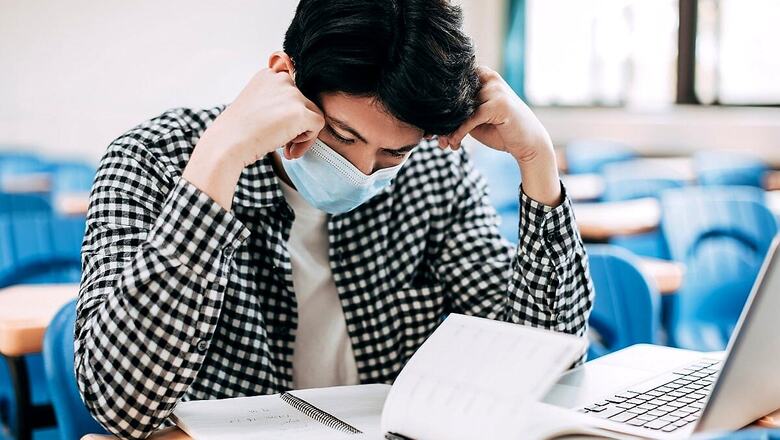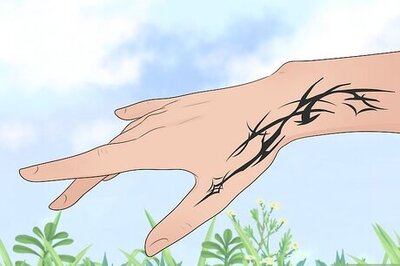
views
The US government does not have a vaccine passport policy, however, colleges in the country can ask foreign students to get vaccinated or self-isolate on arriving, top American diplomat Don Heflin said on Friday. His comments come amid concerns raised over demands of revaccination of Indian students by colleges as the US does not acknowledge Bharat Biotech’s Covaxin, which is yet to receive WHO approval.
“US government does not have a vaccine policy. Our CDC has mandated an RTPCR within three days of travel and no requirement of vaccination. Schools and universities each have their own requirements and you need to check what they want to do. Some schools require people to start with self isolation and if you haven’t been vaccinated, then the first thing they want to do, is to take you to a vaccination center and get you vaccinated,” he said in an interview to CNBC-TV18.
Heflin further specified that H1B visa holder and applicants will be granted permission in exceptional cases and spouses and children of those who qualify will be allowed to travel with them. Further, he made it clear that tourist visas don’t qualify for permission to travel. US citizens will have to be outside India for 14 days and in a country that is not under a travel ban to get the permission, he said.
“Our goal is to interview as many people as we did in 2019. We are scraping up all our resources in the current situation. The US Embassy may exceed 2019 student visa interview numbers,” said Don Heflin, Minister Counselor, Consular Affairs, US Embassy.
Talking about the student visa applications this year, Heflin said, “Its been a tough year for everybody. One of our favorite things is to issue student visas. Last year it didn’t happen for anybody as the pandemic was so strong. This year is better, but we got a late start.”
“We usually like to interview some people in May and a lot of people in June but lot of our consular cities were locked down. We are getting started but we will really get started on 1st July. More of our appointments will be in August than we wanted to. Lot of people had technical difficulties but thousands got their appointments and we will release more appointments next week,” he said.
Assuaging the students’ fears due to delay in visa appointments, he said, “Universities will be willing to work with students on late arrivals. Don’t ask the embassy for an emergency appointment if you have an August appointment.”
“If students are not able to arrive in US by the start date of the program, the universities usually work with you. You can talk to them and ask them to send you a letter that you can show up a little late. We are pretty sure you can work with your university and have a late arrival,” he said.
In view of the COVID-19 pandemic, the US Embassy has limited the number of people that can visit the application centers each day and the applicants have to compulsorily wear masks and maintain six-feet distance when they arrive for their appointments.
Heflin further clarified, “Parents cannot accompany students to US as they would be in tourist category. The Presidential proclamation on India doesn’t allow tourist visas as they do not fall under National Interest Exception. Tourist visas are unlikely to happen this year.”
On the issues of H1B visas, Heflin said, they will be a priority after the student visa process is over. “The US embassy is issuing H1B visas under National Interest Exception, for which applicants need to write to the embassy. Professionals need to show they are traveling in support of critical infrastructure. The US embassy is enabling existing H1B holders and renewing H1B visas for those who fulfill the National Interest Exception,” he specified.
Spouses and children of H1B visa holders who qualify under the ‘National Interest Exception’ can travel to the US, Heflin said.
Journalists also have to apply under the ‘National Interest Exception’. “Due to strong press freedoms in US, journalist visas are treated with deference. Journalist visa applications are likely to qualify,” he said.
US citizens who have taken WHO-approved vaccines and undergone RT-PCR test also cannot travel to US. They will have to be outside India for 14 days and in a country that is not under a travel ban, he said.
Read all the Latest News, Breaking News and Coronavirus News here.


















Comments
0 comment